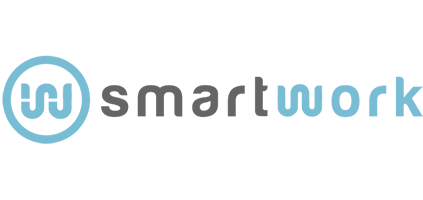
13 Feb The Future of Work

Ricoh, a global provider of technology that helps organisations to be more agile and productive through the transformation of business processes, has published a new report entitled “The Future of Work”. The report, researched and produced by Arup, explores how technology will shape our jobs, with collaboration and sustainability at the core.
The study is divided in three parts: The Human Future of Work, onhow we will approach work as individuals; The Human-Machine Interface, on how we will interact with machines and The Machine and Augmented Intelligence Future, on how machines themselves are going to define work in the future.
Nowadays, artificial and augmented intelligence are seen as potentially the most disruptive change in the workplace to date. Society has been through three industrial revolutions and realised the benefits. We are currently experiencing the fourth industrial revolution and how we respond and handle the opportunities it presents will define the future of work.
Moreover, ageing population in the developed world is a powerful demographic trend that, together with rapid socio-economic shifts and technological advancements, is creating new workforce challenges. With people working for longer because they have to, or because they want to – and as younger generations enter the workforce, a new dynamic is emerging.
How organisations prepare for an increasingly older workforce will be critical. The future of work will see more openness to flexible hours, roles and positions, as well as knowledge – and experience – transfer programmes where older employees share their expertise with younger colleagues. This will all be part of an agenda that aims for a mutually beneficial transition period from employment to retirement.
The key to success will be the capacity of the organisations to leverage the coexistence of a generationally diverse workforce. In fact, a recent study by Ricoh [VT1] suggested that the presence of Gen Z in the workplace united, rather than disrupted, the existing workforce. According to the study, new perspectives, new skills and new ways of working helped to unify the rest of the workforce around key beliefs. This was especially true around performance, innovation, image and differentiation.
Furthermore, workplaces are changing due to employers’ interest on new digital tools to increase productivity, improve the quality of work and to enhance the user experience.
Healthcare apps, smart wearables and other technology interfaces are powerful tools to manage health, receive advice and support, and incentivize healthy behaviours. For instance, many large organisations now offer remote medical services that deliver consultations by video or telephone.
New interfaces are also creating valuable sources of workforce health intelligence for insurance companies and employers. Fitness and activity trackers, tracking physical activity, sleep, heart rate and other critical metrics, are the most popular wearable devices. These are not only incentivizing healthy behaviour but gathering vast health data sets that can inform organisational health policies and programmes. VR can be used as a mechanism to help employees relax or build self-esteem.
However, it is unclear how positive or negative that impact is going to be. Ethical concerns also arise when it comes to collect data on the employees’ health conditions and make it available for insurers and employers.
In general, the report said that what is clear is that level-headed understanding is needed about how these future technologies work and how they will shape the workplace of tomorrow. Reliable evidence on the impacts is needed to promote solutions and interventions that are adequately balancing the willingness of businesses to capitalise on the opportunities and the concerns expressed by the employees to mitigate the risks inherent in being tracked or having some of their tasks potentially replaced.
Authors: Federica Porcu and Valentina Tageo



